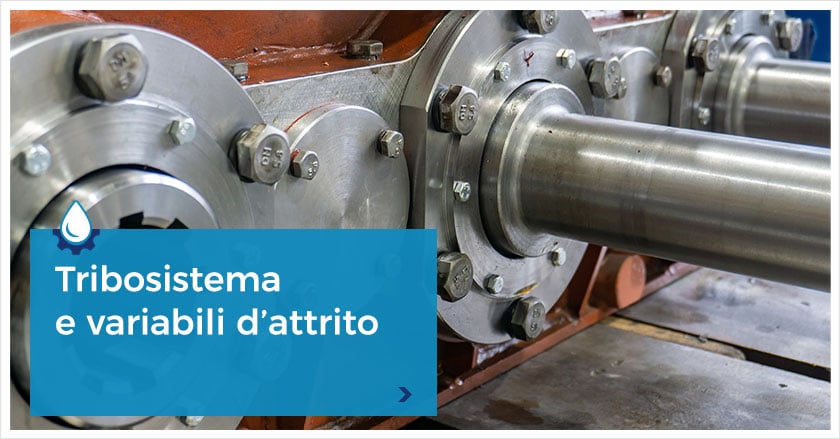
The tribosystem and friction variables
Friction or, as it is more correct and precise to say, frictional force, is generated by the surfaces of two bodies, whose motion opposes that of the other. The direct consequence of friction is wear (loss of material) of moving bodies - a consequence that can be countered (or at least reduced) by applying the right type of lubricant.
Types of friction
Depending on how this force is exerted by the surfaces and compositions of these bodies, we can identify different types of frictional forces:
- Sliding friction, generated by the sliding of a body on a surface thus without any rolling
- Rolling friction, generated by the rolling and translation of the body
- Viscous friction, generated by the motion of a body in a fluid, be it liquid or gaseous
But that's not all!
To these are added the static friction and the dynamic friction, both "children" of the sliding friction, which occur respectively in the case in which the body is stationary on the surface (static) or is in motion and in contact with it (dynamic).
Depending on the friction force, the materials, the sector and the conditions of use, the lubricant necessary to mitigate this phenomenon varies, protecting the mechanisms from damage and wear.
In this article, you can read the differences between:
Frictional force and tribology
Tribology is the science that studies the force of friction, lubrication, wear and all the problems that may arise in the motion between surfaces subjected to loads or other forces.
An incredibly vast discipline with almost infinite applications, if we consider that it is there in practically every action we perform each day, but which certainly has its applicative apex in the industrial sector.
The tribosystem is born from this "union", that is the set of conditions that influence the processes of the frictional force, with all the corresponding variables, with a single goal: to understand how to avoid mechanical wear.
But how does choosing the right lubricant fit into tribology?
Simple! The tribosystem (the functioning of which you can read more about on our page dedicated to high loads) comes to life from 4 fundamental concepts that intersect and influence each other, including the 'interaction parameters', as the identification of the type of friction (rolling or sliding - and if sliding, dynamic friction or static friction), the friction conditions and the possible presence of process fluids and lubricants.
The choice of correct lubricant can therefore decisively affect the duration and efficiency of your mechanical device, so it is important to know the operating conditions of the tribosystem in order to develop the lubricant that best suits your needs!
Lubricate to reduce the frictional force
Regardless of whether we are talking about sliding friction, rolling friction or viscous friction, using the correct lubricant under the right conditions means reducing the amount of sliding between the surfaces and consequently the mechanical wear that it generates over time.
But what do we mean by using the right and functional lubricant under the conditions that the tribosystem suggests? We mean that the lubricant in question must be able to improve the resistance to mechanical stress of the components and reduce the coefficient of friction, especially if we are talking about dynamic friction conditions.
To find out which solution is best suited to your needs and a whole range of other information, click below and download our free guide on lubricants to counteract friction!




